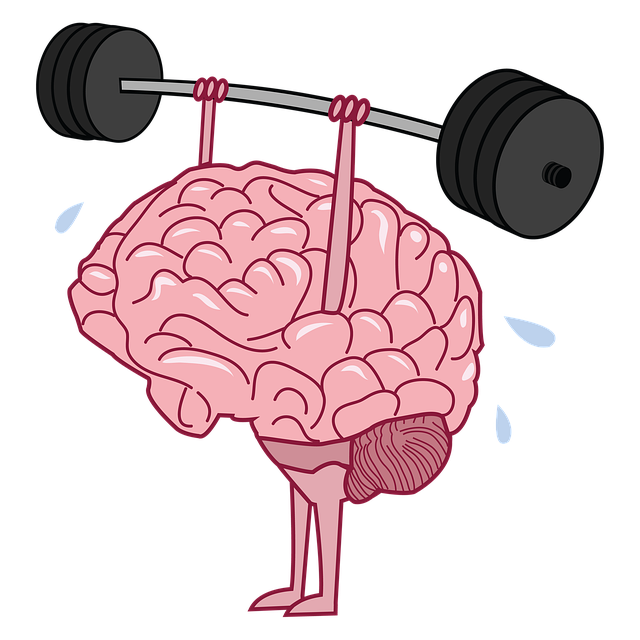Life transitions like moving or job loss can severely affect mental health, increasing the risk of substance abuse. Superior Major Life Transitions Therapy (SMLT) tackles this issue by teaching positive thinking and coping mechanisms to navigate challenges without drugs or alcohol. Integrating SMLT into Mental Health Policy ensures comprehensive support for managing stress during transitions, preventing addiction, and fostering resilience. By adopting self-care routines, cultivating inner strength, and using techniques like conflict resolution and mindfulness, individuals can effectively manage transition-related stress, avoiding unhealthy habits that could lead to substance abuse.
“Substance abuse often intersects with life transitions, creating a complex interplay that requires tailored strategies for effective risk reduction. This article explores how major life events can trigger addictive behaviors and delves into superior therapy approaches to address these challenges during transition periods. We present comprehensive risk reduction strategies emphasizing a holistic recovery approach, combining psychological interventions with lifestyle modifications to mitigate risks and foster lasting well-being.”
- Understanding the Connection Between Life Transitions and Substance Abuse
- The Role of Major Life Events in Triggering Addictive Behaviors
- Effective Therapy Approaches for Addressing Substance Abuse During Transition Periods
- Comprehensive Risk Reduction Strategies: A Holistic Approach to Recovery
Understanding the Connection Between Life Transitions and Substance Abuse

Life transitions—major changes one experiences over time—have a profound impact on mental health. Research suggests a strong connection between significant life events, such as moving to a new city, losing a job, or dealing with a traumatic experience, and an increased risk of substance abuse. These transitions can trigger feelings of stress, anxiety, or depression, which may lead individuals to seek escape or relief through drugs or alcohol. Understanding this connection is crucial in developing effective prevention strategies and treating those struggling with addiction.
Superior Major Life Transitions Therapy (SMLT) recognizes the role of life events in fostering mental health issues and substance abuse. By employing principles of positive thinking and mind over matter, SMLT equips individuals with coping mechanisms to navigate challenges without resorting to harmful substances. Moreover, integrating this therapy into broader Mental Health Policy Analysis and Advocacy initiatives ensures that support systems are in place to help people manage stress and maintain resilience during life transitions.
The Role of Major Life Events in Triggering Addictive Behaviors

Major life events often play a significant role in triggering addictive behaviors. These events, known as superior major life transitions, can include pivotal moments like starting college, entering the workforce, or experiencing the loss of a loved one. The stress and emotional upheaval associated with such transitions can leave individuals vulnerable to substance abuse as a coping mechanism. Many people struggle to navigate these changes without proper support, leading to unhealthy habits that may later develop into addiction.
Developing a robust self-care routine and cultivating inner strength are crucial elements in mitigating the risk of turning to substances during and after significant life events. Techniques such as conflict resolution and mindfulness can also help individuals manage stress and emotional distress. By equipping themselves with these tools, people can better navigate superior major transitions, fostering resilience and a positive mental health outlook that is less susceptible to addiction’s lure.
Effective Therapy Approaches for Addressing Substance Abuse During Transition Periods

During transition periods, such as major life changes or stressful events, individuals are particularly vulnerable to substance abuse. This is due to the emotional turmoil and uncertainty that often accompany these shifts. Effective therapy approaches like Superior Major Life Transitions Therapy (SMLT) play a crucial role in addressing this issue. SMLT helps individuals process their emotions, build resilience, and develop coping mechanisms tailored to their unique experiences.
One of the key components of SMLT is the integration of Emotional Well-being Promotion Techniques and Crisis Intervention Guidance. These strategies empower individuals to manage stress and maintain mental wellness. Additionally, Mental Wellness Journaling Exercise Guidance can be a powerful tool within this framework. Encouraging clients to reflect on their feelings and experiences in a structured journal allows them to gain insights into their triggers and progress over time, fostering better self-awareness and personal growth.
Comprehensive Risk Reduction Strategies: A Holistic Approach to Recovery

Substance abuse is a complex issue that requires a multifaceted approach to address and overcome. Comprehensive risk reduction strategies embrace a holistic view of recovery, acknowledging that an individual’s physical, mental, and social well-being are intricately linked. This approach goes beyond merely treating symptoms; it aims to identify and mitigate underlying risks that contribute to substance abuse. By integrating evidence-based practices like Major Life Transitions Therapy, which assists individuals in navigating significant changes while fostering resilience, with Social Skills Training to enhance interpersonal connections and Stress Reduction Methods for managing anxiety, a more effective support system is created.
Additionally, promoting positive thinking and reframing negative thought patterns can be transformative. Encouraging individuals to cultivate gratitude, practice mindfulness, and adopt coping mechanisms that nurture mental well-being empowers them to make healthier choices. This holistic strategy recognizes that recovery is not just about abstaining from substances but building a robust foundation for long-term mental health and resilience against future risks.
In navigating the complex relationship between life transitions and substance abuse, implementing a comprehensive risk reduction strategy is paramount. By understanding the impact of major life events on addictive behaviors, individuals can harness effective therapy approaches tailored to their unique needs during transition periods. Adopting a holistic approach that integrates psychological support, social connections, and evidence-based practices empowers those affected to overcome challenges and embrace lasting recovery. Through recognizing the significance of these strategies, especially in the context of superior major life transitions therapy, individuals have a greater chance of breaking free from substance abuse cycles, fostering healthier lifestyles, and achieving long-term well-being.














